| | | | | | | Presented By WeWork | | | | Axios Future | | By Bryan Walsh ·Dec 12, 2020 | | Welcome to Axios Future, which was brought to you in between fevered gaming sessions of "Cyberpunk 2077." (See item #6.) Today's Smart Brevity count: 1,876 words or about 7 minutes. | | | | | | 1 big thing: The death spiral of public life | 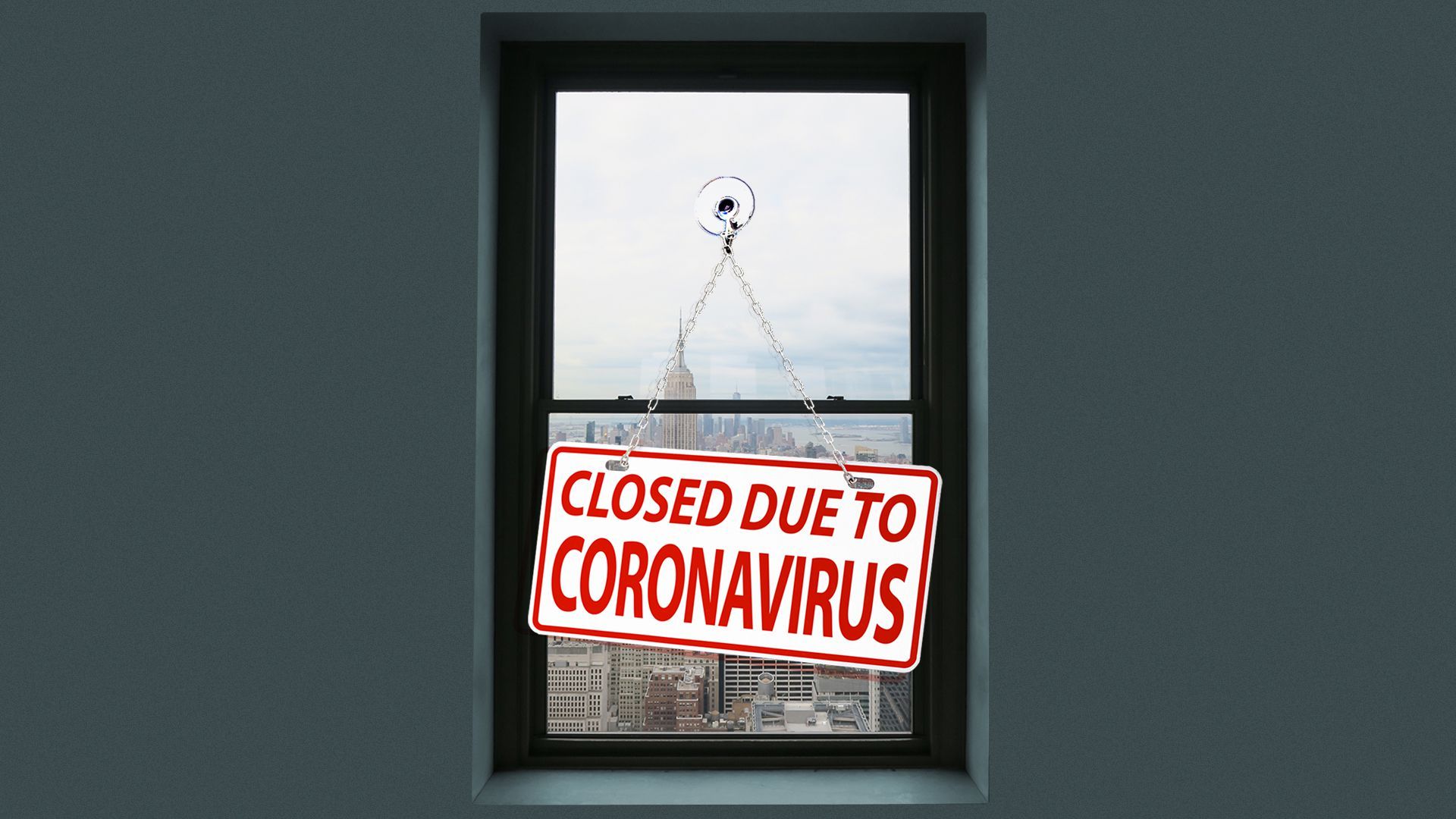 | | | Illustration: Annelise Capossela/Axios | | | | By removing Americans from public life, the pandemic is threatening long-term damage to the essential services we all share — like schools and transit — while worsening inequality. Why it matters: Technology has helped keep many — though far from all of us — working, fed and even entertained at home during the COVID-19 pandemic. But the forced retreat from public life will have toxic ramifications unless the places and services we all share can be saved. The big picture: As deadly as COVID-19 has been for those who have caught it, the pandemic could prove even more devastating for the institutions and services that make up the civic sphere. - Public schools across the country have seen a drastic drop in enrollment, in part because parents frustrated by COVID-closed classrooms and poor remote learning have turned to private schools, which have remained open at higher rates than their public counterparts. Some families are even homeschooling.
- Combined with students moving to private schools, that could lead to budget cuts for public schools that get funding on a per-student basis.
- Public transit systems have been crippled by COVID-19, as ridership plummets thanks to fear of infection and a shift to remote work. The drop in demand comes as funding for pubic transportation is threatened by plunging state and local government revenue.
And the office — that private space in public where many of us used to gather on a daily basis — is mortally threatened. Nearly 14% of office space in Midtown Manhattan is vacant, the highest rate since the depths of the 2009 recession. Be smart: It might be easy to assume we'll reenter public life when the pandemic finally ends. But habits once broken aren't easily restored, especially as the knock-on effects of COVID-19 erode the value of public services. - Both public schools and transit face what some experts have called a "death spiral." As frustrated parents and scared passengers withdraw from the public system, they take tax dollars and fares with them, which means schools and transit services worsen.
- That, in turn, "will cause some of our customers to say, 'you know what, it's not worth it,'" as Pat Foye, the head of New York's Metropolitan Transportation Authority, told Bloomberg TV last month.
Those changes will widen what was already a yawning gap of inequality in the U.S., as only those who can't afford private solutions are left to make do with public remnants. Between the lines: Both push and pull factors are at work in the dissolution of public life. - As technology has improved, so have the benefits of staying at home, where you can increasingly watch what you want, eat what you want, and — if you're fortunate — work how you want, all on your own schedule.
- In the years to come, TVs and game systems — like the next-generation platforms that sold out in seconds this fall — will only improve.
- What this means is that public life and services — which require us to do the messy work of compromising with our fellow citizens — will be competing against an on-demand private life that will only get better in the years ahead.
What to watch: Whether Congress approves billions of dollars in much-needed money to rescue public transit and schools as part of a new round of COVID-19 stimulus funding. The bottom line: It matters hugely whether our future involves returning to the office and public life or watching streaming reruns of "The Office" from our couches while ordering from DoorDash. |     | | | | | | 2. The virtual reality office | 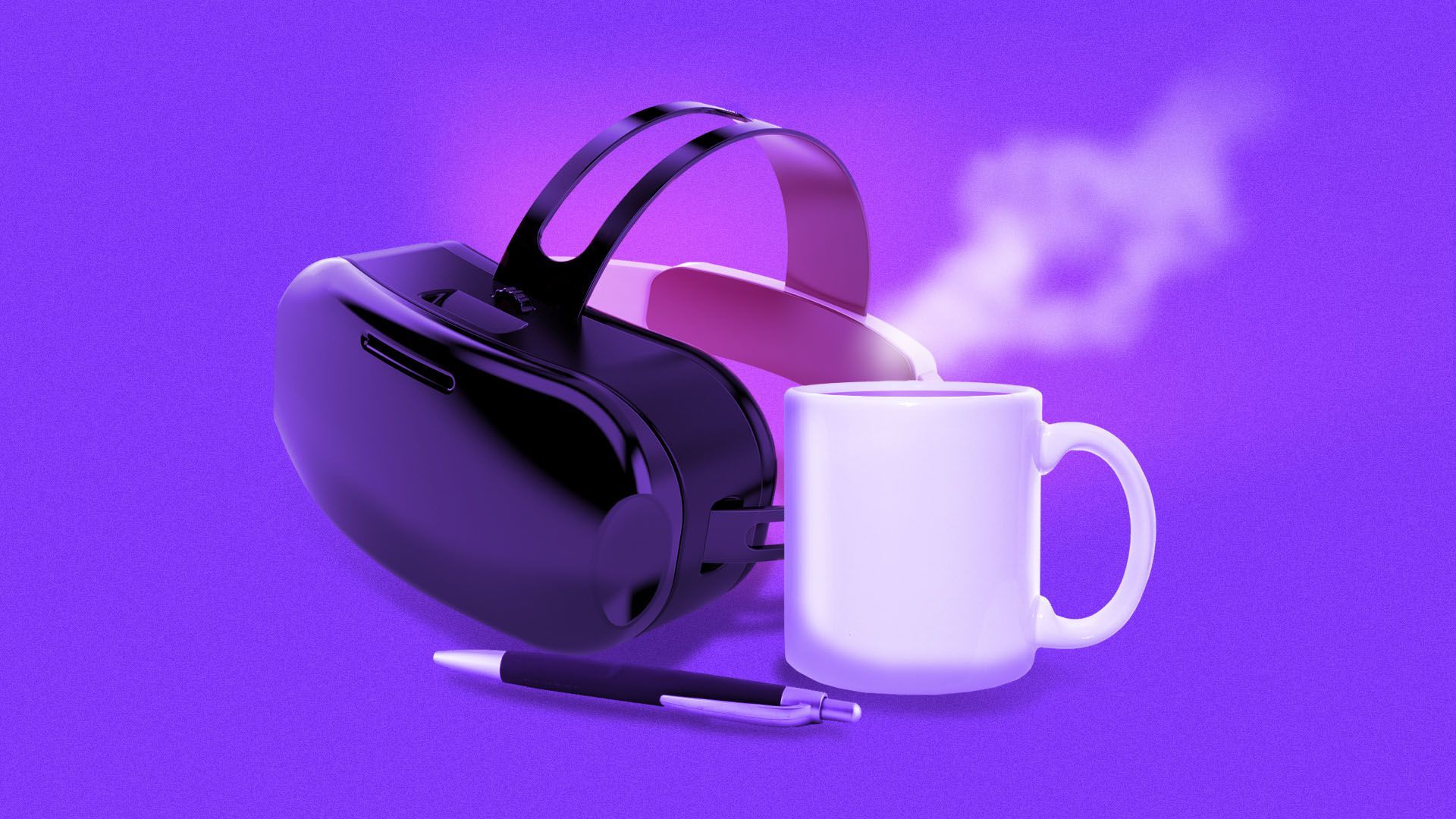 | | | Illustration: Sarah Grillo/Axios | | | | While offices remain closed and travel isn't an option, some companies are turning to virtual reality to bring employees together. Why it matters: Let's face it: Slack sessions and Zoom happy hours can only go so far to promote company cohesion. VR can provide another outlet, even if the technology is still in its infancy. What's happening: True to its name, the workforce of Remote, a startup that helps companies with HR, has been fully remote since its founding. But as the company grew from 8 to approximately 60 employees distributed around the world during the pandemic, its CEO Job van der Voort was forced to find innovative ways to keep his company together. - So van der Voort launched an initiative to provide all Remote employees with VR headsets to enable them to have formal meetings, conversations and even social events in a more immersive virtual space.
- "At first it feels very silly to put on the headset," says van der Voort. "But eventually it helps you feel more present with someone when you're all together in VR space."
Details: Strivr, an immersive learning company, has seen an increase in demand for its VR training sessions during the pandemic, as executives can no longer travel to satellite offices. - "Virtual reality environments have great potential for expanding access to the best learning principles possible," says Michael Casale, the chief science officer at Strivr.
- "When people can interact with the environment, they can freely explore decisions, instead of the lessons being forced on them."
Yes, but: Top-line VR headsets are still expensive, and not every employee will feel comfortable interacting with colleagues in virtual environments, let alone while planning an online "Grand Theft Auto IV" heist. The bottom line: I'm getting motion sickness just thinking about a VR Axios editorial meeting. |     | | | | | | 3. Protecting the Pope's library from hacking | 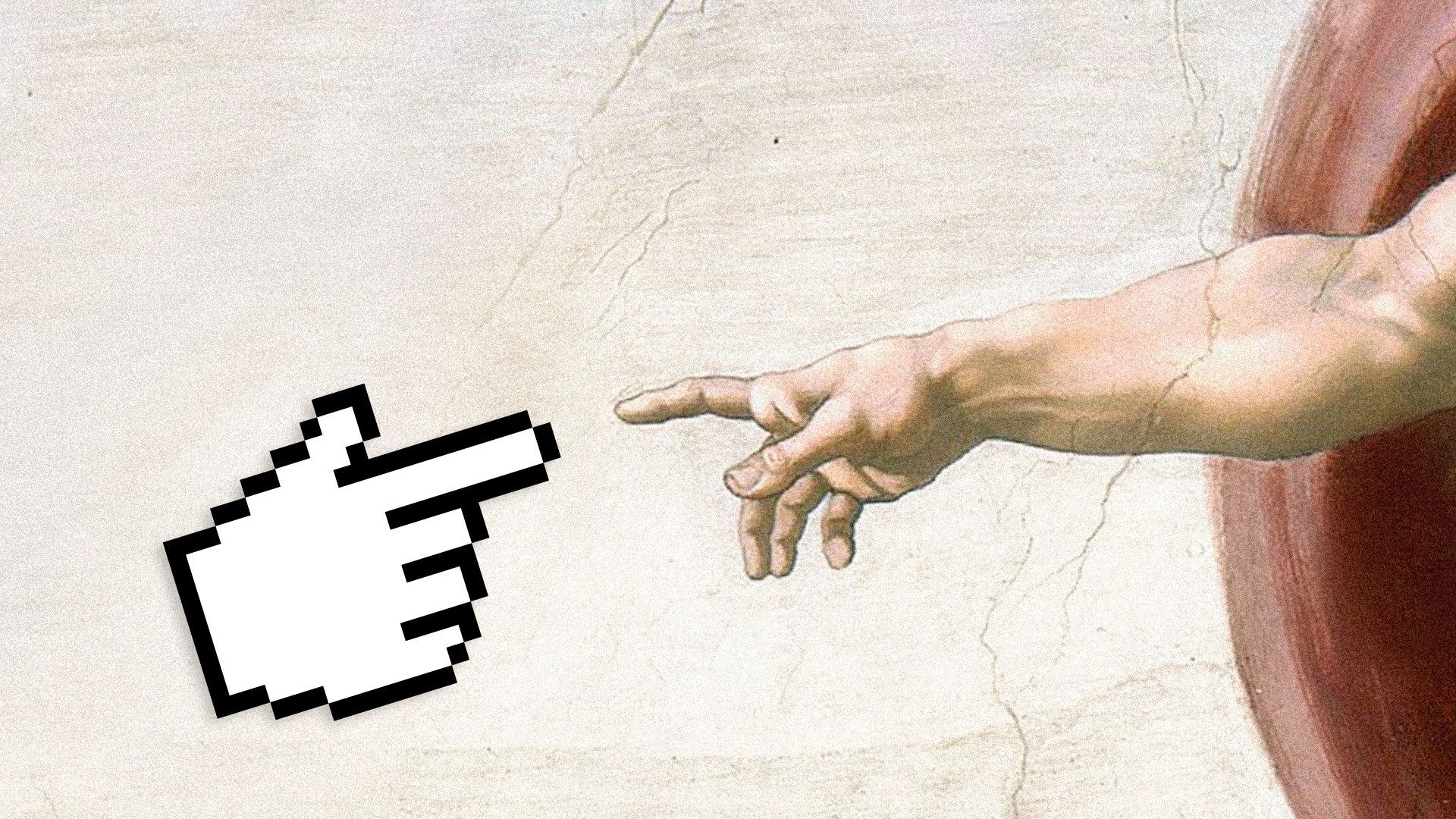 | | | Illustration: Aïda Amer/Axios | | | | A cybersecurity firm is working with the Vatican to defend its priceless collection of digitized writings from hacking efforts. Why it matters: Digitizing library archives can provide an invaluable backup should the originals be lost or destroyed, but they're also vulnerable to cyberattacks. Without stout defenses, digital libraries can be looted or even vandalized. What's happening: The more than 500-year-old Vatican Library, which holds among other historical treasures the oldest surviving copy of the Bible, has been in the process of digitizing over 80,000 of its rarest documents. - The digital archive "allows more people to explore the world's history firsthand," says Manlio Miceli, chief information officer for the Vatican Library.
- But the archive also presents a tempting target to hackers, which is why the Library announced last month that it would begin working with the cyber AI company Darktrace to defend its digital treasures.
How it works: Justin Fier, the director for cyber intelligence and analysis at Darktrace, says the company has been defending the library against about 100 hacking attempts per month. - As part of its cyberdefense efforts, Darktrace is employing what it calls an "enterprise immune system," which develops an ongoing understanding of normal activity within the Vatican Library's digital operations, so it can quickly detect when something is off.
- "What we can do is tell you what's usual and what's unusual," says Fier. "And 90% of the time, the unusual turns out to be either intentionally or unintentionally malicious."
The bottom line: As a former Catholic altar server, I just want to know whether hacking the Pope counts as a venial or a mortal sin. |     | | | | | | A message from WeWork | | The big changes coming to your workplace | | |  | | | | COVID-19 has transformed the way people think about work. What's now top of mind: - Spaces that foster collaboration while prioritizing wellbeing.
- Offices that flex to the demands of a variable world.
- Freedom for employees to work where they want.
WeWork reveals what this could look like. | | | | | | 4. Helping industrial robots learn to see | 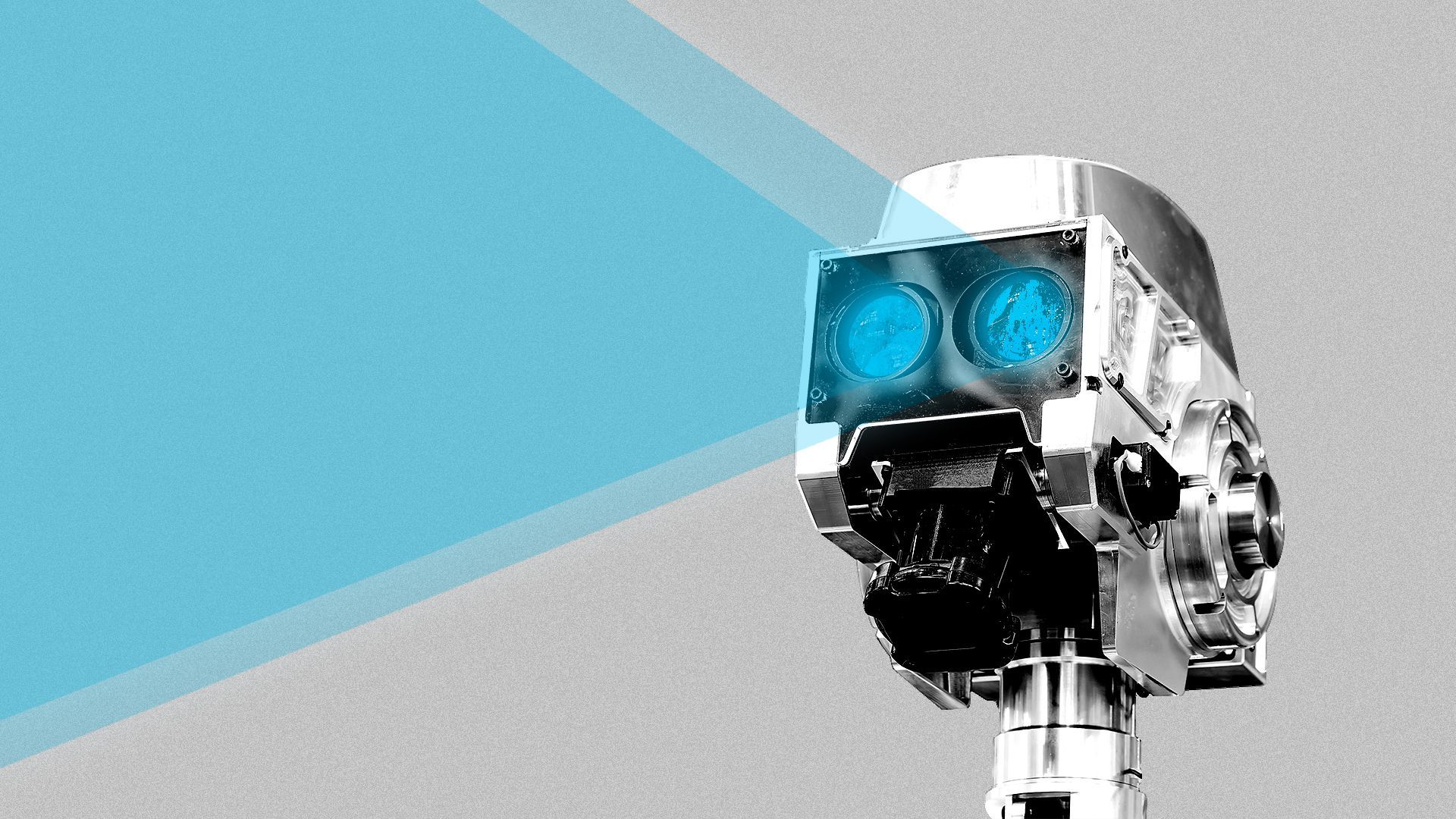 | | | Illustration: Aïda Amer/Axios | | | | A young startup is bringing improved vision to industrial robots. Why it matters: As important as the manual abilities of robots are, they need the ability to properly see their environments before they can take a bigger role in industrial workplaces. What's happening: Akasha Imaging, which focuses on deep imaging and robotic vision, closed on Wednesday a $10.75 million Series A funding round led by Khosla Ventures. - Akasha uses deep learning to produce 3D images in unstructured environments, which can help train industrial robots to "see" their surroundings and more precisely handle products of all shapes and sizes.
- "We can create synthetic data and use that to test [robots] in the real world," says Kartik Venkataraman, Akasha Imaging's CEO. "And because the data is synthetic, we can do our testing remotely."
Details: Vision — as you'll know if you've ever tried to, say, wrap a holiday present after misplacing your glasses — is key to manual work. That's especially true if you're operating in the less than fully predictable real world. - With robots, "even if our colleagues on the electronics side have done a perfect job, without good vision it's the equivalent of blindfolded humans trying to do packaging," says Achuta Kadambi, the company's chief scientist. "We help take the blindfold off."
The bottom line: Kadambi believes robotic vision will mean robots eventually "will be able to do tasks that are impossible today" — even for humans. |     | | | | | | 5. Worthy of your time | | Every COVID-19 vaccine question you'll ever have, answered (Tara Haelle — Elemental) - If you have any questions about the coming coronavirus vaccine, this story — by one of the best publications on the COVID-19 beat — will answer them.
The future of the U.S. national stockpile isn't a bigger stockpile (Shira Stein — Bloomberg) - When it comes to building up the defenses against the next pandemic, the key isn't what we have on hand, but how fast we can make what we need.
How our data encodes systematic racism (Deborah Raji — MIT Tech Review) - Despite what we think, data does lie, and we need to work proactively to ensure machine learning systems don't encode the bias that already exists in society.
Fixing the mass transit crisis (Matthew Yglesias — Slow Boring) - I've been enjoying Yglesias's newsletter, which launched last month after he left Vox, and this piece on preventing a transit death spiral is explanatory journalism at its best.
|     | | | | | | 6. 1 game thing: "Cyberpunk 2077" goes back to the future | 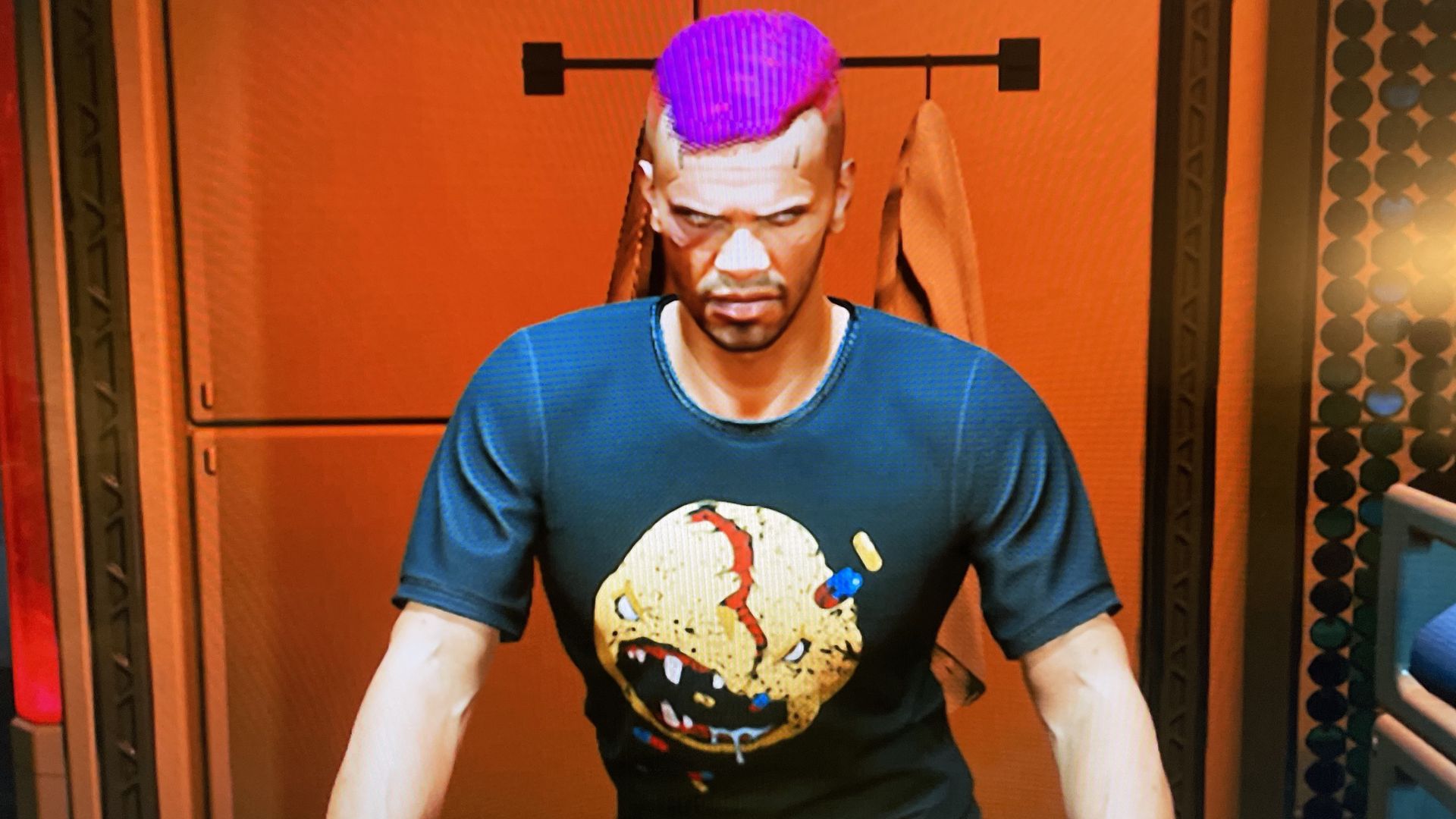 | | | My friendly neighborhood "Cyberpunk 2077" avatar. I'm particularly proud of the hair. Photo: Bryan Walsh | | | | One of the most heavily anticipated video games in years portrays a 1980s-influenced vision of a dystopic, crime- and tech-ridden tomorrow. Why it matters: "Cyberpunk 2077" sold a record 8 million pre-orders before it even dropped on Dec. 10, and it'll likely go down as one of the biggest entertainment products of the year. It may not represent our actual future — let's hope — but it could well be the future of leisure. Background: Based off the "Cyberpunk" tabletop role-playing game and developed by the Polish gaming company CD Projekt Red, "Cyberpunk 2077" sets out to answer the question "what if 'Blade Runner' but on a PlayStation 5?" - You play a totally customizable character named "V" navigating the digital underworld of a Los Angeles-like metropolis called Night City, where government is nonexistent and hacker gangs and all-powerful corporations vie for supremacy.
- Also, this guy shows up.
Yes, that's Keanu Reeves, whom I hope was paid an ungodly amount of money to appear as the legendary hacker Johnny Silverhand. I haven't gotten far enough to see whether he makes you listen to his old Dogstar recordings. Credit: NerdistHow it works: "Cyberpunk 2077" is what's known as an "open-world action-adventure RPG," not unlike CD Projekt Red's earlier "Witcher" series, which you've probably never heard of but has apparently sold more than 50 million copies. The catch: Despite the insane hype and early sales, the buzz around "Cyberpunk 2077" has quickly turned dark, in large part because in the rush to get it out the door, the game was released with so many bugs that they've become a meme unto themselves. - Critics have argued "Cyberpunk 2077" feels less like a fresh take on the growing influence of tech and more like "a specific set of 1980s and '90s-influenced retro-future noir conventions" in the words of Verge writer Adi Robertson.
- Hence Keanu, the star of "The Matrix" and "Johnny Mnemonic."
Yes, but: I haven't gotten that far in the game — because I have, like, a family and job and stuff — but I have to admit I'm getting a kick out of role-playing a cybernetic street criminal with black-market robot eyes. - One advantage video games have in the streaming era is the release version can be updated over the internet, so I imagine in a few months "Cyberpunk 2077" will gleam like a Shinjuku office tower.
The big picture: The global video gaming market is expected to top $159 billion in revenue this year, as the technology improves and other entertainment options disappear in the pandemic. |     | | | | | | A message from WeWork | | The impact of the global work from home movement | | | 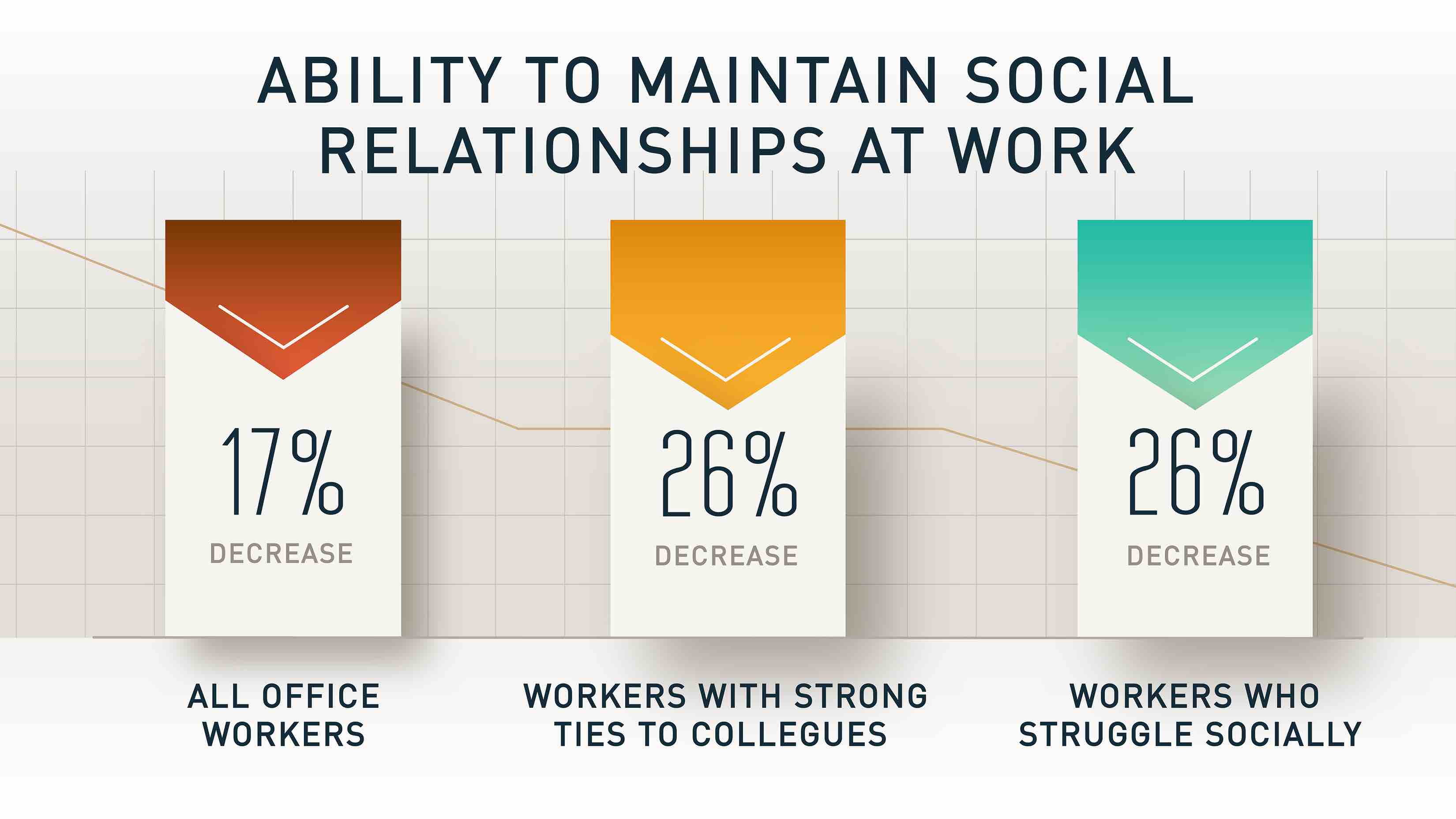 | | | | Office workers' ability to maintain social relationships has declined 17% since working from home, finds a WeWork blind study. That number is 26% for workers who struggle socially at work. See how less in-person collaboration impacts innovation. | | | | | | Axios thanks our partners for supporting our newsletters.
Sponsorship has no influence on editorial content. Axios, 3100 Clarendon Blvd, Suite 1300, Arlington VA 22201 | | | You received this email because you signed up for newsletters from Axios.
Change your preferences or unsubscribe here. | | | Was this email forwarded to you?
Sign up now to get Axios in your inbox. | | | | Follow Axios on social media:    | | | | | |
Post a Comment
0Comments